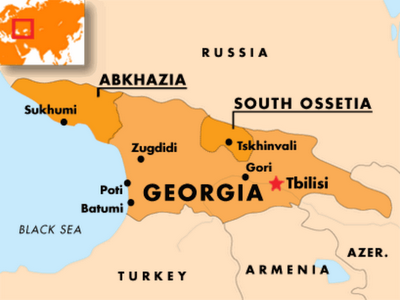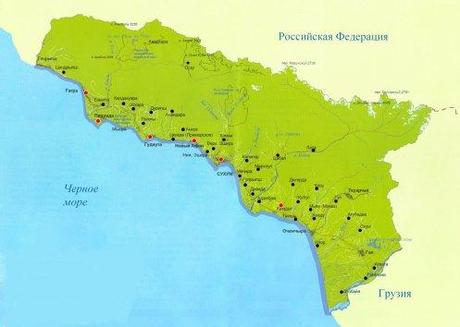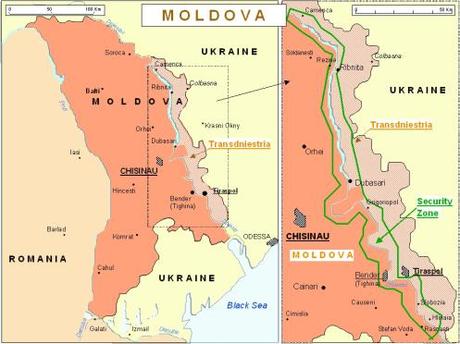It is the same old song: former Soviet Republics who want true independence and to make their own economic and political choices are pitted against a Russia that seems determined to return to the days of Soviet glory. President Putin has found that the theme plays nicely at home, at least until the economic costs come home to roost.
As Georgia and Moldova announce their intentions to sign on the dotted line to join in a trade and political pact with the European Union, Russia has warned both countries against the deal. Neither country would be joining the European Union immediately as this is an association agreement. But it is a first step toward eventual full membership in the EU.
Just so you know, this is exactly what got Ukraine in hot water. Ukraine was ready to ink an association agreement with the EU, something a majority of citizens clearly wanted, and the violent protests that began in Kyiv (Kiev) were a result of the Yanukovich government backing out of the deal after extensive guidance from Moscow. Yanukovich was ousted from office and the country is now involved in a civil war.
When Russia invaded Georgia in 2008 the breakaway Georgian territories of Abkhazia and South Ossetia were recognized by Moscow as independent nations even though most of the world has refused such recognition.

For all intents and purposes Russia has already “taken” Abkhazia and South Ossetia without the inconvenience of annexation. Abkhazia for example is an economic basket case and we don’t think that Russia wants to further absorb either Abkhazia or South Ossetia due to economic costs.

Map of Abkhazia. To the top is Русский Федерация (Russian Federation) and to the bottom right is Грузия (Georgia).
Russia has recognized Abkhazian political “independence” in as far as Russia really calls the shots and just forced President Aleksandr Z. Ankvab to resign after mass protests in the tiny “nation” recently. A new election in Abkhazia is scheduled for 24 August.
At issue with Moldova is the breakaway province of Transnistria which has a large Russian-speaking minority population. In the case of Transnistria the population at last count (2009) was 550,000 if which 150,000 are Russian. The Russian Army has approximately 1200 peacekeeping troops in Transnistria.

Russia already supports both of Georgia’s breakaway republics heavily and taking on additional social and infrastructure costs at this point in time would be dangerous to the Putin government. Moscow has found a successful recipe in energizing dissent amongst the minorities of Russian-speakers in former Soviet republics and assisting and guiding their activities but allowing the locals, many of whom are poor and not well educated, to do the heavy lifting so that Russia can claim some semblance of distance from such movements.
Recently there has been a proliferation of advertising flyers around Moscow promoting seminars on how to protect personal savings and prepare for possible pension cuts due to the economic impact of annexing Crimea and Sevastopol. No matter one’s attitude on the political issue, Russians are beginning to sense that the economic costs will be heavier than at first advertised. Russian activist Alyona Popova is a speaker at some of these seminars specifically targeted to women and she has done much to improve the lot of women in small business start-ups, etc.
Some cities and regions are now showing concerns and are communicating with their Duma representatives about the prospects of budget cuts at home in order to support new territories just annexed. At this stage of the game Moscow isn’t going to swallow up Abkhazia or South Ossetia and especially not the even more severely impoverished Transnistria, as to do so would be financial suicide and perhaps even eventually usher in increased calls for regime change in mother Russia.
Do countries like Georgia and Moldova have reason to be concerned about Moscow’s warnings? Russia wouldn’t issue the warnings if they were empty threats–that is not the Putin style. The real politic reality is that any former Soviet member country that dares to look West instead of East should be prepared to deal with the wrath of a much larger and very powerful neighbor that has clear designs on reconstituting some semblance of the region’s Soviet past.


